Food is a key pillar in building a healthy lifestyle as it supplies us with the nutrition we need to feel our best and keep our bodies functioning smoothly. Regardless of what stage of life we’re in, a healthy diet is one of the most important factors in our wellbeing. Especially as we age, our body’s ability to absorb and produce nutrients decreases. This rings true for one specific nutrient – collagen. While there are some food choices can contribute to accelerating collagen’s breakdown, there are specific nutrients that help to support our body’s collagen-building processes and maintain healthy collagen levels. Learn what to pass on and what to reach for, in order to support and promote collagen production in your body!
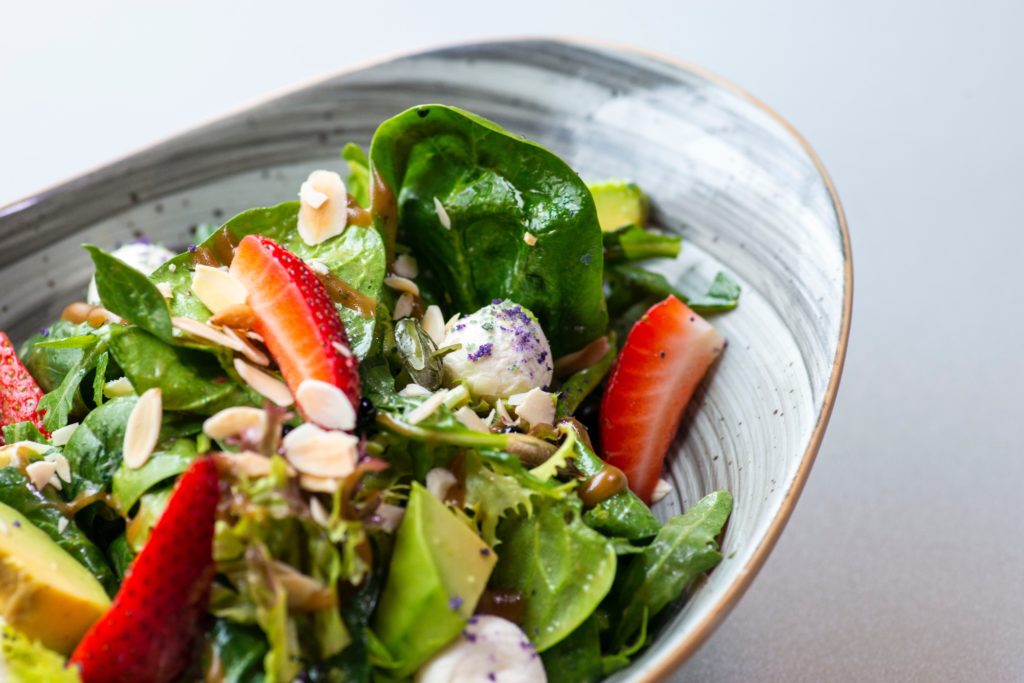
3 things that kill natural collagen
We know that consuming too much of anything isn’t great for our bodies. These three compounds contribute to a loss of collagen, especially when consumed in excess. Remember, everything in moderation!
Caffeine
We know caffeine as that component in coffee that helps to energize us. But, did you know that it can also have certain negative effects on your collagen production?
Caffeine inhibits an enzyme called prolidase which plays a key role in collagen synthesis, thus reducing its capacity to produce collagen. This effect is dose-dependent, meaning that the more caffeine you consume, the greater the negative effect on collagen. It also acts as a diuretic, encouraging loss of water which dehydrates your body, including your skin, making it look duller. Lastly, it stimulates the production of cortisol, our stress hormone, which also has a negative impact on collagen production!
What to choose instead of caffeine? Be sure to drink lots of water, and be mindful of your state of mind. If you’re already feeling anxious and restless, it may be best to skip the caffeine and reach for a herbal tea or glass of water instead. Be honest with yourself, do you really need that extra cup of coffee today?
Alcohol
Alcohol is one of those common culprits that we know has exclusively negative effects on our health. It is cause for dehydration, increases oxidative stress, puts additional strain on our liver detoxification processes, and more.
Alcohol consumption reduces our levels of vitamin A and thus, lowers collagen production in the skin. Similar to caffeine, it is also a diuretic and dehydrates our skin, leading to dry, flaky skin, and increased visibility of wrinkles.
How to approach alcohol. Reduce, reduce, reduce your consumption! If you aren’t entirely removing alcohol from your lifestyle, it’s encouraged to drink responsibly, include lots of water breaks, and up your antioxidant intake to help fight the negative effects of alcohol.
Sugar
Sugar is one of those sneaky nutrients that we need to survive, but in excess can have detrimental effects on our health. When consumed in large quantities and over long periods of time, high levels of blood sugar (or hyperglycemia) can trigger inflammation as well as contribute to sagging and aging skin, trigger joint pain, and influence bone metabolism.
This is because sugar binds to collagen proteins and reduces elasticity in the affected tissue. This can happen to the collagen in our skin, bones, joints, muscles, tendons, and cartilage – it’s not a selective effect.
How do we fight the negative effects of sugar? Be aware and mindful of your consumption! When consuming high amounts of sugar, try to include some fiber, protein, and/or fats to help slow the absorption into the bloodstream, and fend off that spike in blood sugar. With sugar, we’re playing the long game, so work with your trusted healthcare practitioner to ensure you have healthy blood sugar levels – it will help to reduce the negative effects on your collagen integrity.
Remember, sugar is okay in moderation! Certain sources of sugar, like fruit, maple syrup, or honey, offer other beneficial nutrients beyond just their carbohydrates, so when possible consider swapping refined sugar for these natural and nourishing sources.
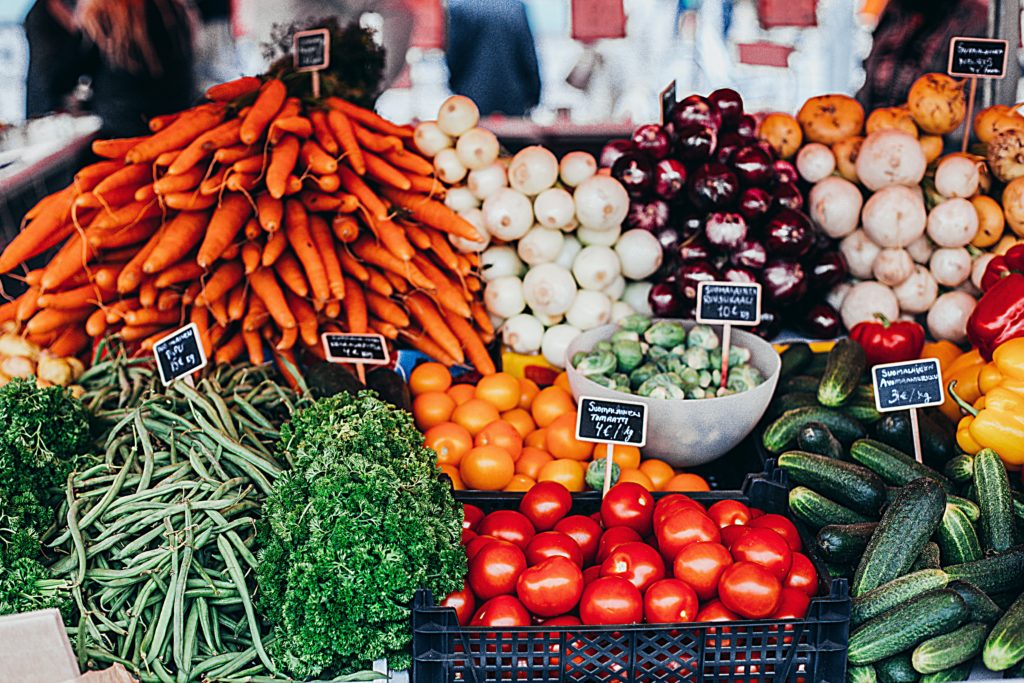
3 nutrients to support collagen production
Silicon
Silicon is the second most abundant element found in the earth’s crust. It’s also the third most abundant trace element in our bodies, present in various tissues and bodily fluids. Silicon plays an essential role in strengthening connective tissues, bones, and joints, and supporting the health of our nails, hair, and skin. Sounds very similar to collagen, right? That’s because silicon is a necessary nutrient in the synthesis of two key proteins – collagen and elastin. While collagen provides structure to the skin, elastin provides elasticity.![]()
Foods rich in silicon
- Green beans (7mg / cup)
- Bananas (4.77mg / banana)
- Spinach (4.1mg / 2 tablespoons)
- Brown rice (4.51mg / 3 tablespoons)
- Most cereals – those with oat bran are among the highest (3.27mg / 2 tablespoons)
- Red lentils (1.77mg / tablespoon)
Vitamin C
Vitamin C plays a major role in the production of collagen, a protein that gives our bodies structure. It works by converting a specific amino acid, proline, into a collagen-building compound. Without enough vitamin C, the body’s ability to produce collagen is lowered. Vitamin C also helps to cross-link collagen proteins, which allows them to form strong and supportive tissue.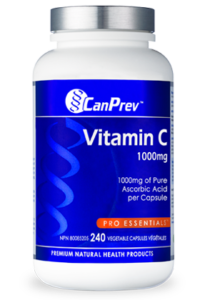
According to Health Canada, the Recommended Dietary Allowance (RDA) per day is 90mg for men and 75mg for women.
Foods rich in vitamin C
- Red pepper (95mg / 1/2 cup)
- Strawberries (85mg / cup)
- Kiwi (70mg / medium-sized fruit)
- Oranges (69.7mg / large-sized fruit)
- Broccoli (50mg / 1/2 cup, cooked)
- Lemons (44.5mg / large-sized fruit)
- Grapefruits (31.2mg / 100g)
Zinc
Zinc is a mineral that helps support healthy collagen production by activating enzymes essential for collagen synthesis. It also activates a protein called collagenase that allows your cells to remodel collagen during wound healing. Beyond collagen synthesis, zinc is responsible for over 300 reactions in the body. Together, collagen and zinc work towards strengthening hair follicles, reducing symptoms of rheumatoid arthritis, promoting muscle growth, and more.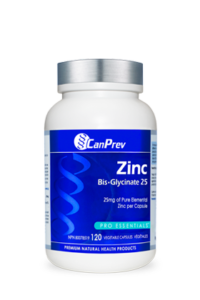
According to Health Canada, the Recommended Dietary Allowance (RDA) per day is 11mg for men and 8mg for women.
Foods rich in zinc
- Oysters (25mg / 30g)
- Alaskan crab (7.6mg / 100g)
- Beef (2.5mg / 30g)
- Egg (1.3mg / egg)
- Cashews (1.6mg / 30g)
- Chickpeas, dry (0.9mg / 30g)
In addition to consuming a balanced diet with a variety of fruits and vegetables to support your body’s collagen production, high-quality supplements is also a natural and reliable way to ensure you’re getting all the nutrients your body needs. Always consult with your healthcare practitioner for specific recommendations and guidance.





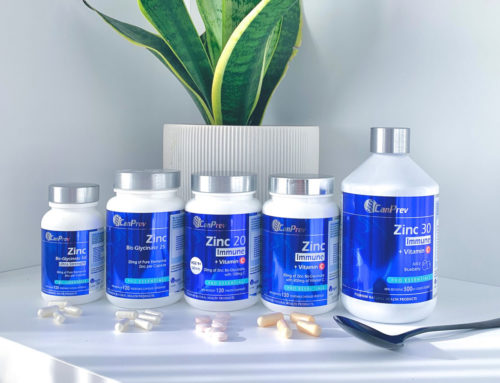

Leave A Comment